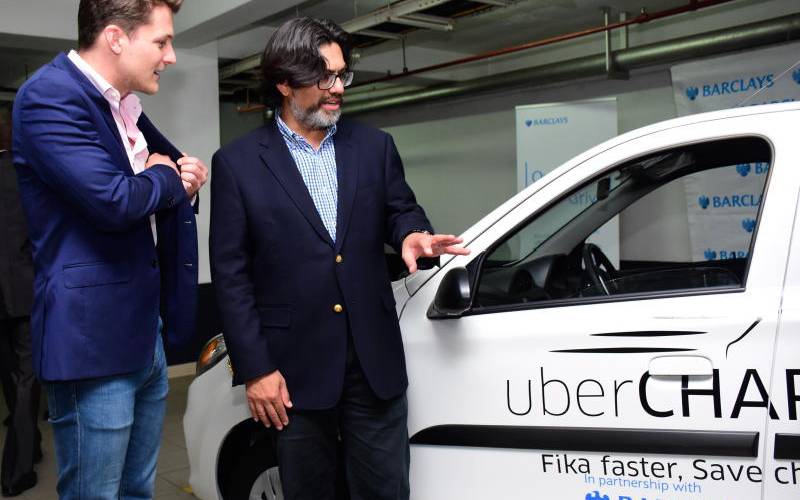×
The Standard e-Paper
Kenya’s Boldest Voice

Uber East Africa General Manger Loic Amado with Barclays Bank's Director of Retail and Business banking Zahid Mustafa when they signed a partnership MoU.[Wilberforce Okwiri]
It is Monday morning. Most investors in the digital application taxi business are eagerly waiting for a notification on their mobile phones about weekly returns from their drivers.